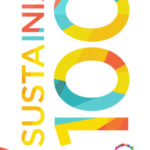A UNEP global research project finds that youth can influence switch to sustainable lifestyles. Young people want to be a force for change and create their own vision of sustainable development, according to survey of more than 8000 young adults from 20 countries conducted by the United Nations Environment Programme.
The study, called the Global Survey for Sustainable Lifestyles, was one of the first global surveys on sustainable lifestyles. The results provide intriguing insights into the way young people think about their daily lives and activities, their aspirations for the future, and their beliefs about the role they play in influencing change.Its results show that young adults from Australia to Vietnam, and Ethiopia to Egypt, consider poverty and environmental degradation to be the worlds two biggest challenges, but they want more information on what they can do to be part of the solution. They also need help to understand the combined environmental, economic and social pillars of sustainable development.
The surveys results are presented in UNEPs new report, Visions for Change: Recommendations for Effective Policies on Sustainable Lifestyles, highlighting the need to work together to better understand, educate and empower young adults worldwide so they can create their own positive visions of sustainable lifestyles and become involved in change.
For instance, the survey found that:
While young people are willing to participate and improve the world they live in, and are confident that they can do so (with only 23.5 per cent of young people thinking they could not have an influence on local policies), they need guidance and opportunities to take concrete action.
Although most young people consider environmental degradation as one of the top two global challenges, this varies from region to region; 82.3 per cent of young people in Australia, 73.8 per cent in Vietnam and 71.1 per cent in Sweden consider environmental degradation as one of the top two global challenges, while only 42.4 per cent in Egypt, 38 per cent in Brazil and 34.2 in Argentina do so.
Young adults are very satisfied with their lives, with only a few of them dreaming of luxury lifestyles, but they still seek financial, social, environmental and personal security. They want to live in a clean environment, as opposed to chaotic and polluted urban areas, and be closer to nature, particularly in developing/emerging countries like Brazil, Vietnam and Lebanon.
Although demand for organic and local foods is strong, young people in most surveyed countries do not mention organic food when asked to describe their daily purchasing habits. For instance, in the Philippines, organic food and fair trade products were hardly mentioned and only 10 per cent of young people in Portugal thought about it when explaining their choices.
In many countries, the issue of sustainability is rarely mentioned as a reason for using public transport; for example, in Brazil less than 1 per cent of young people mentioned generating less pollution or preserving the environment as motivations for using public transport.
Young people want local options that they can include in their daily lives: Asked to react to sustainability scenarios -mobility (car sharing, bicycle centre, car pooling), food (urban gardens, vegetable bag subscription, family take-away) and housekeeping (collective laundry, urban composting, energy management) most young people choose the bicycle centre, urban gardens and urban composting. This shows the need to have initiatives that are involving but not intrusive, where they can interact and participate at the local level.
Trust was an issue for many young people; only 30 per cent of those surveyed think their neighbours trust each other. Despite this, many young people actively participate in activities involving others. For sustainable lifestyles solutions at the local and community level to be successful, more trust and social links among young people are needed. This will allow cooperation, solidarity and collective creativity to develop, creating the essential environment for sustainable solutions to flourish. Associations, non-governmental organizations and youth groups need to build partnerships with young people to inform them about and engage them in sustainable lifestyles practices.
For a better understanding of sustainable lifestyles and consumption patterns, more research and education is needed to help in the shift towards sustainable lifestyles. Schools, professional training and awareness raising have an important role to play in building capacities for sustainable lifestyles. Existing initiatives and networks that focus on research and education for sustainable lifestyles should be improved and replicated. This will help advance sustainable lifestyles and create new visions for sustainable lifestyles.
Our aim was to listen to young peoples voices from around the world, to hear what they think, their aspirations for the future and reactions to sustainable lifestyles, said Sylvie Lemmet, director of UNEPs Paris-based Division for Technology, Industry and Economics. We hope that by doing this we can better understand and identify the best strategies to develop effective policies and initiatives for the sustainable lifestyles we will need in the future.
This survey was a joint project developed in the framework of the Marrakech Process on Sustainable Consumption and Production (SCP) by UNEP and the Task Force on Sustainable Lifestyles, led by Sweden from 2005 to 2009.
Understanding lifestyles is crucial if we are to solve some of the environmental challenges we face today. A sustainable lifestyle means rethinking our ways of living, how we buy and what we consume every day. It also includes rethinking how we organize our daily lives, altering the way we socialize, exchange, share, educate and build identities. Enabled both by individual actions and efficient infrastructures, sustainable lifestyles play a key role in minimizing the use of natural resources, emissions, waste and pollution while supporting equitable socio-economic development.
The survey focused on young urban adults aged 18 to 35. With half of the worlds population under 30 years of age and most of them living in developing countries, young adults are increasingly becoming catalysts for social, cultural and technological innovation and significant figures in shaping lifestyles and consumption trends.
The collection and analysis of the survey resulted from a collaborative effort involving an international network of more than 45 organizations, including the International Association of Universities, 28 universities and higher education institutions, research centres and experts, civil society organizations, communications agencies and youth groups.
The survey reveals that while young adults are willing to participate and help improve the world they live in, they need to be given more options that they can adapt to their everyday lives for them to contribute to the development of sustainable lifestyles.
Commenting on the report, Professor Tim Jackson, Director of RESOLVE at the University of Surrey, said our responsibility to future generations rests on building strong and credible visions of a sustainable future and the Global Survey on Sustainable Lifestyles has taken a first important step in this direction. Visions for Change shows genuine seeds of real hope and that hope may be the most powerful resource at our disposal, he added.
Visions for Change – Recommendations for Effective Policies on Sustainable Lifestyles
This publication provides recommendations to develop efficient sustainable lifestyles policies and initiatives based on the Global Survey on Sustainable Lifestyles (GSSL). It is aimed at policy-makers and all relevant stakeholders on how best to help support the shift to sustainable lifestyles, for instance through effective communication and awareness-raising campaigns.
The survey, which involved 8,000 young urban adults from 20 different countries, points to three key dimensions of empowerment and creativity: new visions of progress, behavioural alternatives, as well as trust and participation.
The report highlights the need for working together to better comprehend, educate and empower young adults globally, to enable them to create their own positive visions of sustainable lifestyles, and therefore become actors of change.
The GSSL was jointly developed by UNEP and the Task Force on Sustainable Lifestyles, which was led by Sweden from 2005-2009, in the framework of the Marrakech Process on Sustainable Consumption and Production (SCP).
Language: English
Publication date: February 2011
Programme: Education | Marrakech Process
ISBN: 978-92-807-3116-3
Pages: 86




